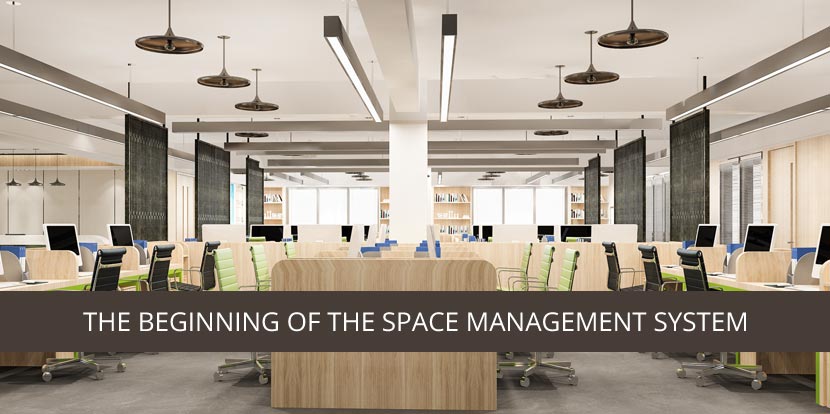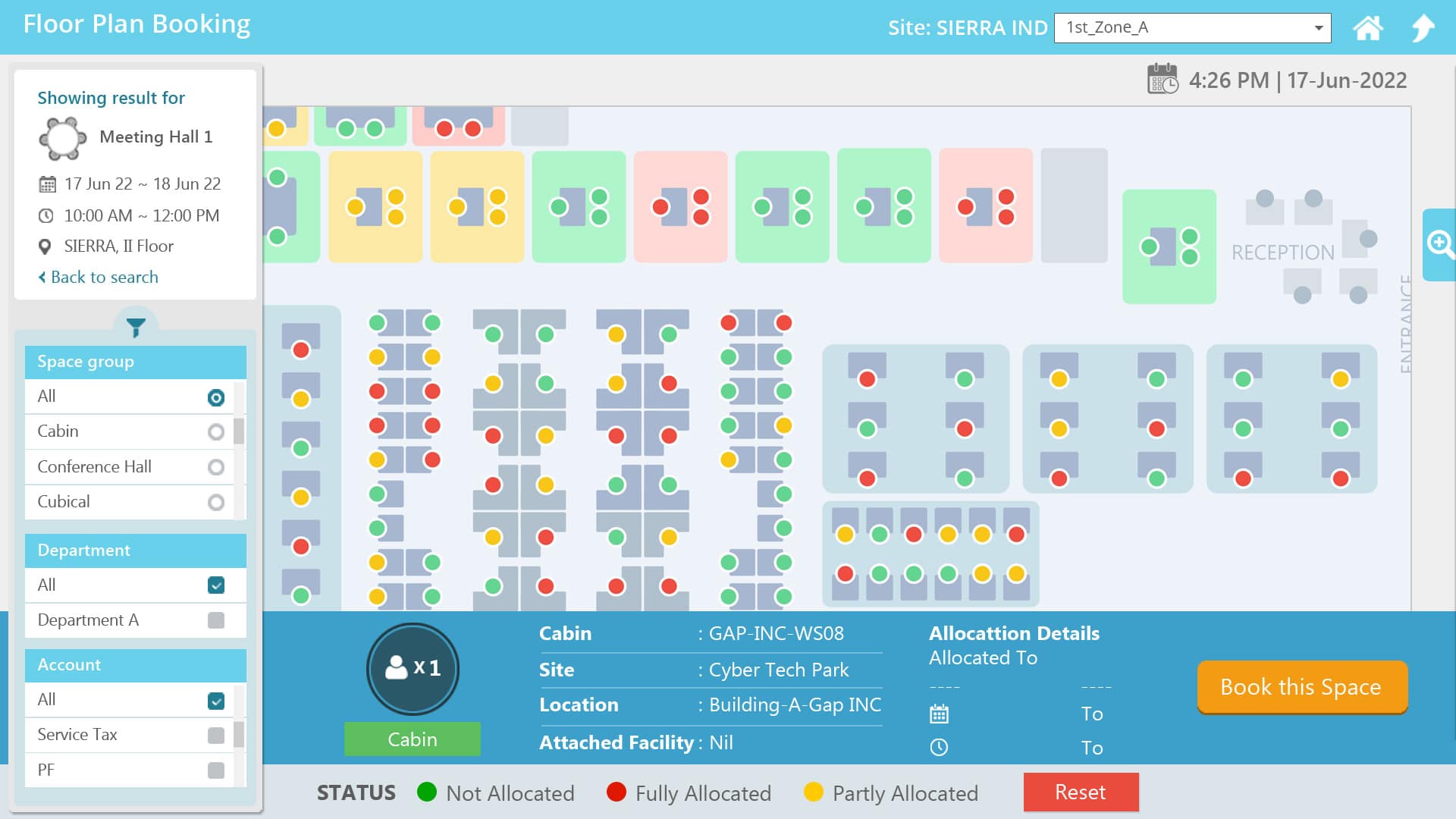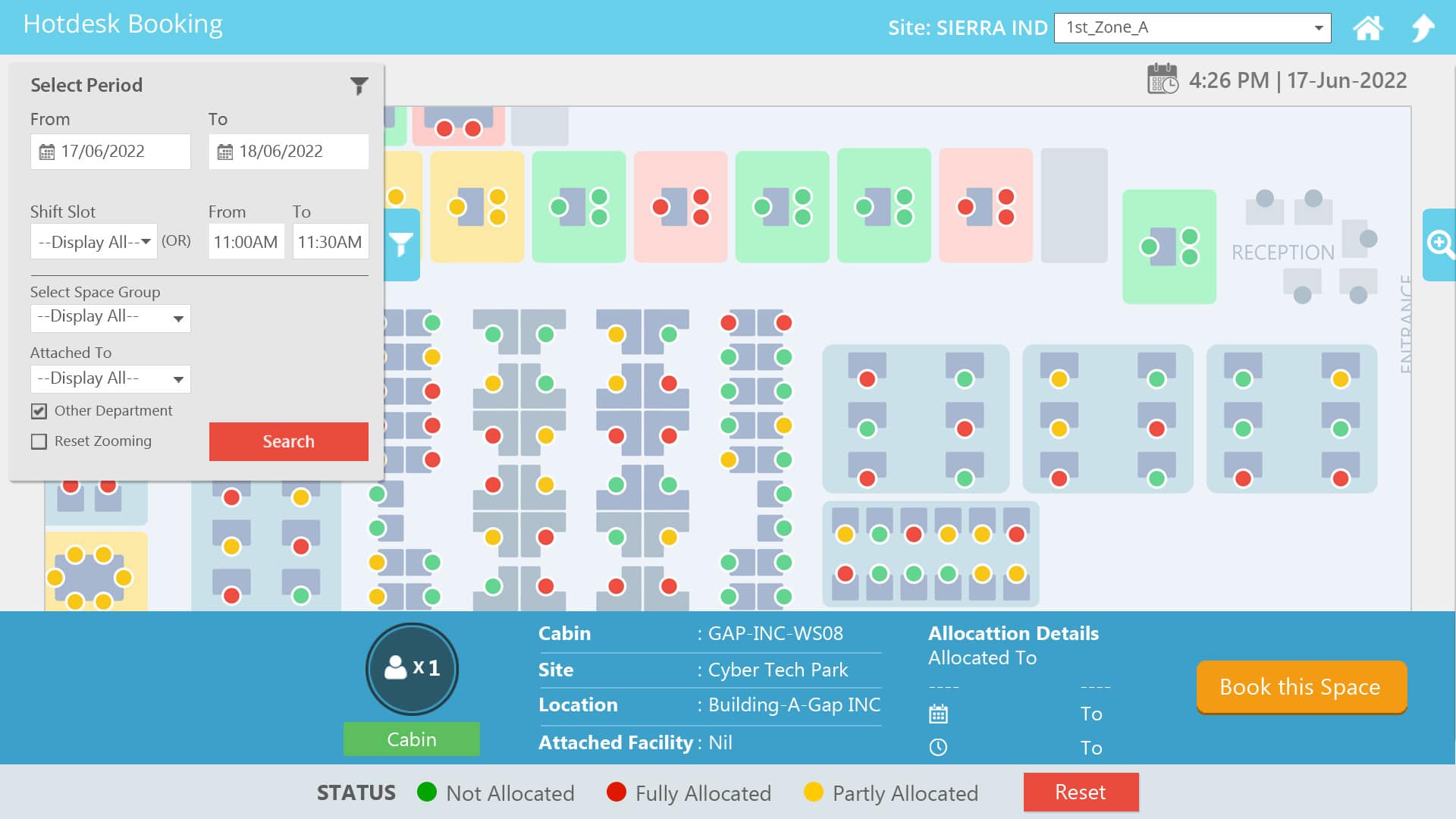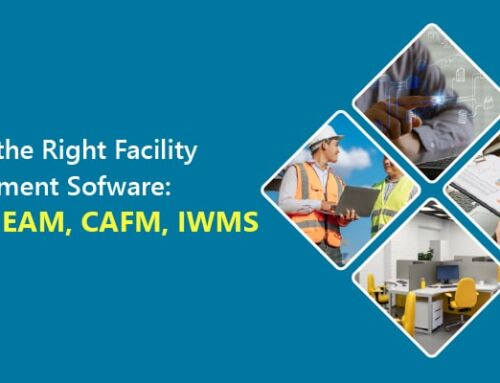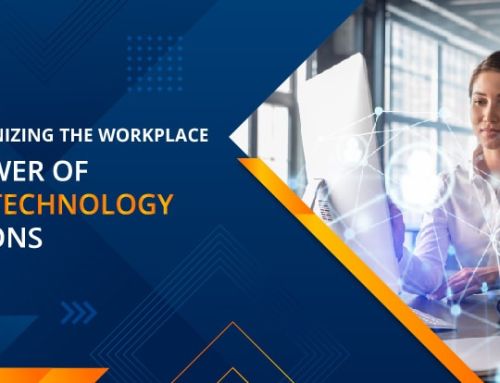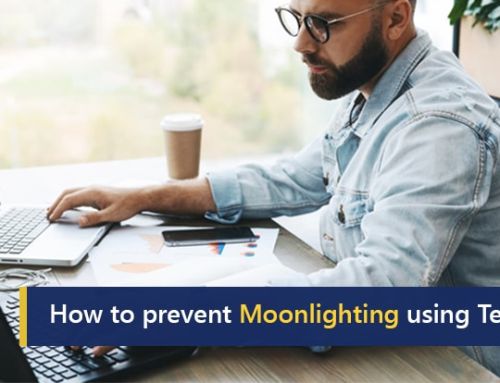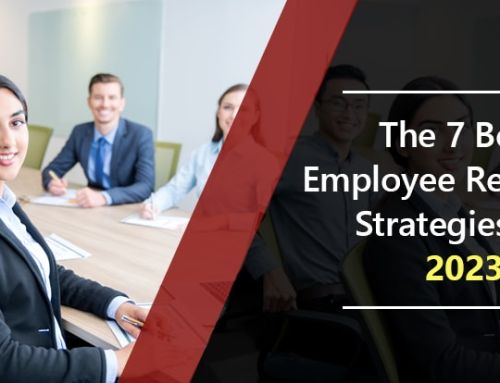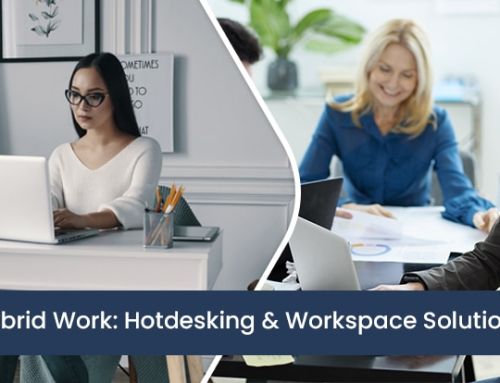Workplace management isn’t a new practice but lately, it has gotten more attention. Most enterprises spend a large amount on real estate and infrastructure costs to keep up with their goals and the employee needs. It is crucial to have efficient space management software implemented to run an organization smoothly.
After the Pandemic hit the world, everything changed; health, safety and hygiene have become the topmost priority of everyone. Since then, hybrid working, a combination of work from home and office has brought a drastic change in the concept of workspace allocation, and space optimization software has gained significance, and implementing it helps companies manage their spaces better. Workplace management before the pandemic involved using permanent spaces, with each department having a dedicated space. However, today, the scenario has changed, and advanced software is required to manage space efficiently. As the pandemic started to abate, the employees started to occupy spaces in their offices in a phased manner, though it sounds welcoming it also comes with a unique set of challenges. Companies have been aiming hard to follow post-COVID-19 protocols, which created a need for social distancing to ensure their employees could remain healthy, and work in a safe environment. Since remote working has become a permanent arrangement, companies need to implement hot-desking to help them redesign their entire workspace and cut down huge infrastructure costs.
Space optimization
The concept of managing and controlling the estate efficiently with a software/management system is called space optimization/management. Space management enables the strategic implementation of using the available resources efficiently. When the workspace is carefully configured to suit today’s requirements you can be sure that your organization is neatly optimized, comforting, and welcoming.
After the pandemic struck the world, companies shifted their focus towards a hybrid style of working and started to look out for an application that renders their space management seamlessly and also reduces their real estate costs. Organizations are confident in bringing back the employees to the office using the hygiene and safety cards. The organization has to fulfil the expectation of the employee workplace experience and has to also keep in mind the safety & standards, productivity, and efficiency.
Why does someone need it?
Space optimization is a multifarious concept. It is not just organizing the working space. It also makes a difference in many aspects.
Efficiency: Having a workplace with a diverse range of workstations where the employees can choose the place they desire. It makes them feel welcomed and relaxed to work in their favourite workplace which promotes a feel-good factor, thus increasing the efficiency of the employee leading to an overall increase in productivity.
Cost Reduction: Space optimization is altogether about the workspace in one place, technically everything is in one application. And cost reduction happens since the real estate utilization is reduced and operational costs such as electricity, water, housekeeping, security and maintenance activities are reduced proportionately.
Comfort: You achieve a comfort level when you have your personal space, whether to connect with peers or to be distant from others and book a convenient space based on the daylight availability and indoor temperature by looking at the floor plans, all from the comfort of their homes. Privacy gives you comfort and leads to better productivity. On the contrary, timely cleaning and maintenance scheduled through the application make the workplace hygienic.
Safety: With the changing trends of Covid-19, everything needs to be handled carefully, health and safety should be the topmost priorities for everyone. Booking the spaces online with seat management software permits a restrictive number of seats per day and alternative seat booking allows the following of social distancing protocols. This application keeps track of every employee so that if a person gets infected, immediately the place used by him/her, it will be cordoned off until it gets disinfected. And the people sitting next to this person can be tracked and a request/caution can be sent to them to take tests and isolate themselves, to reduce the spread of the virus.
Why is space optimisation important for organisations?
Space optimisation uses sophisticated real-time modelling which builds up unique characteristics of the facility. Space optimisation helps in controlling two of the largest assets in the facility, the workplace, and the workforce. It leverages the workplace to its highest potential and increases the employee experience positively. Research studies indicate that organisations upgrading from manual space management to automated space management reduce their overall operating costs, saving time and increasing productivity across the organisation. The hot-desking feature in space management, when implemented, reduces the real estate cost, increases collaboration among employees and offers a cleaner environment. To manage the space efficiently you need the perfect software, one that suits and fulfils all your requirements.
Choosing the right software/system
After understanding the benefits of a space management system, everyone wishes to get one, but choosing the right one is critical. eFACiLiTY® space management system is the leading workplace space planning solution that allows you to efficiently track & manage department/cost, centre/project-wise space allocation, seat assignment, and hot-desking/on-demand seat booking of shared workspaces.
